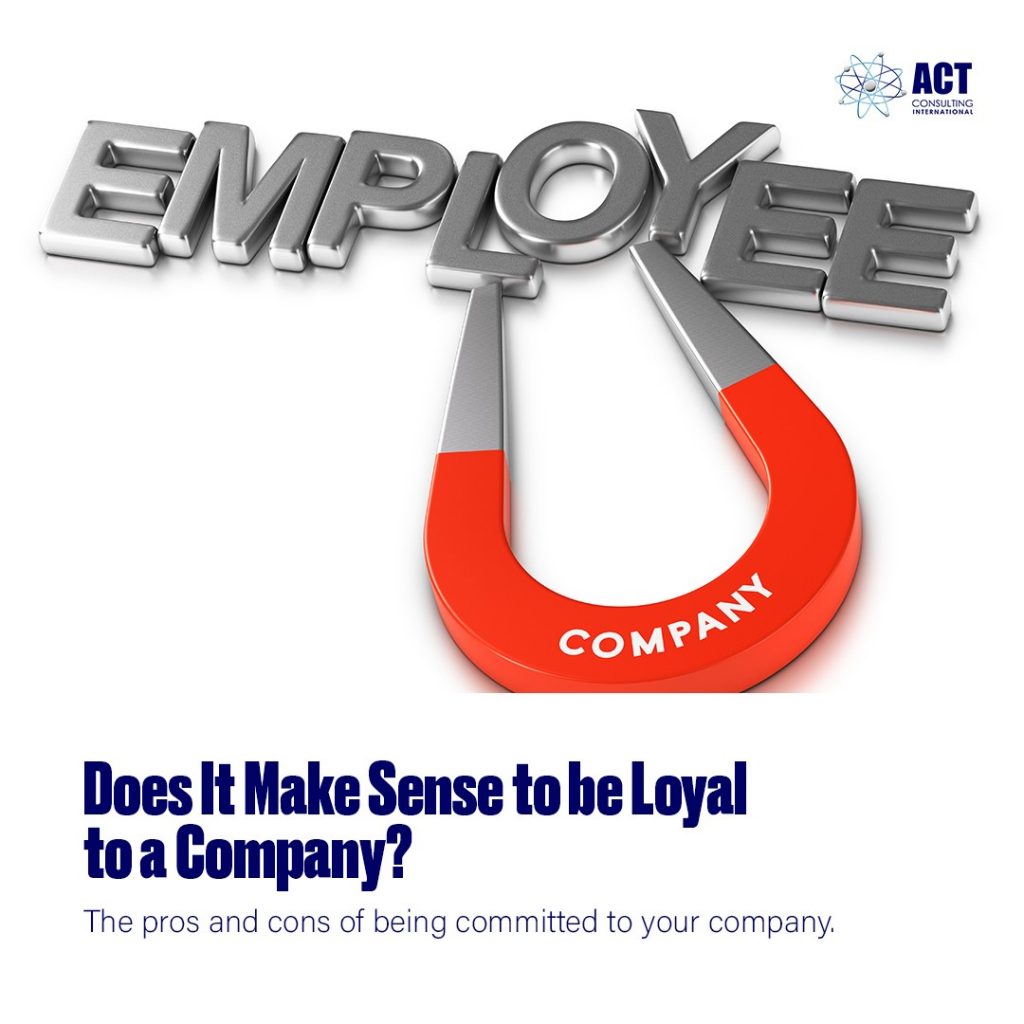
Employees’ loyalty to the organization can be recognized as an important topic for a company’s human resource management issues, especially when the managers have shifted from focusing on the materials, equipment, and inventory to “knowledge assets” of the employees – in other words, the transition from the “industrial age” to the “era of knowledge”. It could be stated that companies are competing by using the skills and talents of their employees. Within the 21st century, many ideologies have changed throughout the business world on what makes loyal, good employees, and how to retain them. Demographics, education, and cultural diversities have as much to do with it as does the company’s leadership, competition, and cost of retaining employees.
Researchers have found six factors affecting employee loyalty, which constitute colleagues, leaders, job characteristics, remuneration policies, organizational culture, and working environment. But the question remains: what is loyalty?
Loyalty has many definitions, and it can change based on what context the word is used. For this topic, we have made a suggestion to describe the meaning of loyalty. Loyalty is a deliberate commitment to further the best interests of one’s employer, even when doing so may demand sacrificing some aspects of one’s self-interest beyond what would be required by one’s legal and other moral duties.
But under what conditions does it make sense for an employee to offer loyalty to his employer or an organization?
The main ways in which loyalty to one’s employer can assist human prosperity are that it makes the employee more trustworthy and therefore more valuable as an employee; makes it easier to form pure relationships in other areas of the employee’s life; broaden the employee’s field of interests and gives them a richer identity; provides greater motivation for the employee’s work; makes it possible to have greater unity in the employee’s life; improves the performance of the organization for which the employee works; contributes to the protection of valuable social institutions; and, in so far as many employees share an attitude of loyalty towards the organization which employs them, it becomes possible for the organization to become a true community. Last, but not least, loyal relationships have an inherent value.
Although a loyal commitment toward one’s employer can make one’s life significantly richer, in many circumstances, a hundred-percent commitment to an employer would not make sense. Many employers may deserve some commitment, but not one of total commitment. There is always an element of risk that the employer may fail to reciprocate the commitment it is given and it may be appropriate to take precautions to minimize one’s losses if that were to be the case. However, we can’t stress that in many situations loyalty in the workplace can be a very fine thing, highly conducive to the flourishing of the employee. The more worthwhile the purposes of the employer and the more it constitutes a real community, and the more one can expect a degree of mutuality in the relationship, the more it will be reasonable to commit more fully to that employer.
Based on the pros and cons of being loyal to a company, we propose that instead of focusing on whether an employee should commit themselves to a company, leaders and employees should instead start focusing on colleague relationships, improving leadership of business owners, attaching importance to appropriate work arrangement, having appropriate remuneration policies for laborers, building positive and effective organizational culture and working environment to improve employee loyalty at your company.
At ACT Consulting International, we strive to be your best partner in culture transformation. With programs customized to your specific needs and requirements, ACT Consulting International provides you with a precise, quantifiable, and focused approach to transforming your corporate culture into a better leadership & people, business, and culture for your company.
Source:
- Elegido, J.M. 2013. Does It Make Sense to be Loyal to a Company? The Journal of Business Ethics, 116(3). DOI:10.1007/s10551-012-1482-4
- Horn, L. 2017. Keeping Employees Loyal and Content in the 21st Century. Integrated Studies (81), 1-52. Retrieved from https://core.ac.uk/download/pdf/143838409.pdf
- NGUYEN, HH, NGUYEN, TT, & NGUYEN, PT (2020). Factors Affecting Employee Loyalty: A Case of Small and Medium Enterprises in Tra Vinh Province, Viet Nam. The Journal of Asian Finance, Economics and Business, 7 (1), 153–158. https://doi.org/10.13106/JAFEB.2020.VOL7.NO1.153
